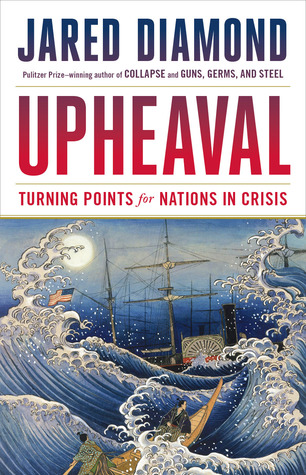More on this book
Community
Kindle Notes & Highlights
Successful coping with either external or internal pressures requires selective change. That’s as true of nations as of individuals. The key word here is “selective.” It’s neither possible nor desirable for individuals or nations to change completely, and to discard everything of their former identities. The challenge, for nations as for individuals in crisis, is to figure out which parts of their identities are already functioning well and don’t need changing, and which parts are no longer working and do need changing.
Hence one can think of a crisis as a moment of truth: a turning point, when conditions before and after that “moment” are “much more” different from one another than before and after “most” other moments.
The turning point represents a challenge. It creates pressure to devise new coping methods, when former coping methods have proved inadequate to resolve the challenge. If an individual or nation does devise new and better coping methods, then we say that the crisis has been resolved successfully.
Hence a therapist’s immediate goal in the first session—or else the first step if one is dealing with an acknowledged crisis by oneself or with the help of friends—is to overcome that paralysis by means of what is termed “building a fence.” That means identifying the specific things that really have gone wrong during the crisis, so that one can say, “Here, inside the fence, are the particular problems in my life, but everything else outside the fence is normal and OK.” Often, a person in crisis feels relieved as soon as he or she starts to formulate the problem and to build a fence around it.
...more
Ego strength includes being able to tolerate strong emotions, to keep focused under stress, to express yourself freely, to perceive reality accurately, and to make sound decisions.


